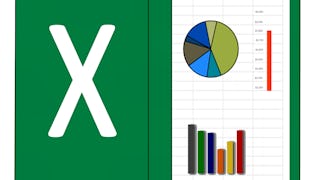![[Video thumbnail] Data analyst vs business analyst](https://images.ctfassets.net/wp1lcwdav1p1/1iCD6TZq6UdPJYH18pH4zI/ebc324f0d1a00e62b9e4afa5835f7abb/DATA_ANALYST__VS__BUSINESS_ANALYST_.jpg?w=330&h=216&q=60&fit=fill&f=faces&fm=jpg&fl=progressive)
Data Analyst vs. Business Analyst: Which Career Path Is Right for You? [VIDEO]
Love data and want a career that's both in-demand AND rewarding? This video breaks down two hot roles - Data Analyst and Business Analyst - to help you choose the path that's right for you.
January 25, 2025
Article

![[Featured Image] Three members of a business’s human resources team discuss the business systems analyst salary range for a new hire.](https://images.ctfassets.net/wp1lcwdav1p1/2JFPQsudKkN2P9Zu1otpGe/f0deb091072bb33505d162f9516da95a/GettyImages-1473508665__1_.jpg?w=330&h=216&q=60&fit=fill&f=faces&fm=jpg&fl=progressive)
![[Video thumbnail] Become an IT business analyst](https://images.ctfassets.net/wp1lcwdav1p1/16ctDWZTTXrlnQJYzuJmgt/c4cf35d4d60bf44e48a5e2792a1297de/Become_an__IT_Business_Analyst_.jpg?w=330&h=216&q=60&fit=fill&f=faces&fm=jpg&fl=progressive)
![[Featured Image] Two analysts look at charts on a whiteboard as they discuss business intelligence versus business analytics.](https://images.ctfassets.net/wp1lcwdav1p1/22eAeanNyvUXeam0Vp1hU9/8b78610a72f20a9be215ff0a8cf941dd/GettyImages-551986071.jpg?w=330&h=216&q=60&fit=fill&f=faces&fm=jpg&fl=progressive)
![[Featured Image] Two coworkers look at a desktop computer display.](https://images.ctfassets.net/wp1lcwdav1p1/2YPaIR6UQz4wUZUwRHe8sY/f2f4a489d995b9c4db0095b75c2b66c0/Stocksy_txpe0666ad4RLr200_Large_2772942.jpg?w=330&h=216&q=60&fit=fill&f=faces&fm=jpg&fl=progressive)
![[Featured Image] Person in interview](https://images.ctfassets.net/wp1lcwdav1p1/2snDrbmQOLCKyAW30BHEU9/7417c2ba1038995b67323b70b8a3c288/GettyImages-1273390394.jpg?w=330&h=216&q=60&fit=fill&f=faces&fm=jpg&fl=progressive)



![[Featured Image]: IT Business Analyst, working at a desktop computer, evaluating the company's current technology.](https://images.ctfassets.net/wp1lcwdav1p1/1iR3izwqxhutloa99XeX8C/641d59ca0dc9de9d6229a398022a5f70/GettyImages-980654204_IT_project_management__8_.jpg?w=330&h=216&q=60&fit=fill&f=faces&fm=jpg&fl=progressive)
![[Featured Image]: Team of financial analysts analyzing the organization's financial processes to help improve its profitability.](https://images.ctfassets.net/wp1lcwdav1p1/3IZkWRRM9Lb2yFRo4brbF1/9830ee79bc90e0fc0a31a7f0f792f263/GettyImages-598255892.jpg?w=330&h=216&q=60&fit=fill&f=faces&fm=jpg&fl=progressive)
![[Featured Image] A person in a dark blue shirt sits facing a trio of computer monitors in a large open-office space.](https://images.ctfassets.net/wp1lcwdav1p1/1rScxfq9zBJZoWBpq0gk8Z/c1d9330cacbb4a488d6d574b35a47a59/����vlog�����ۿ�_Wesley_Megan_Miller_0262.jpeg?w=330&h=216&q=60&fit=fill&f=faces&fm=jpg&fl=progressive)
![[Featured Image] A supply chain analyst holding a device records and discusses information with a warehouse worker while they stand in the warehouse.](https://images.ctfassets.net/wp1lcwdav1p1/6aLU4Aq81z1We9egQzELlt/736cc1aa7903c94990da10278ef283ab/GettyImages-1470939666.jpg?w=330&h=216&q=60&fit=fill&f=faces&fm=jpg&fl=progressive)
![[Feature Image] A business systems analyst reviews recommendations with a business leader as they discuss ongoing strategies for process improvements.](https://images.ctfassets.net/wp1lcwdav1p1/RPLIpglkrd3GFUgIlxE1z/0d514edd6b1298956f232e5e4a444a64/GettyImages-1345630279.jpg?w=330&h=216&q=60&fit=fill&f=faces&fm=jpg&fl=progressive)
![[Featured Image] A person holding an entry-level analyst job, wearing a gray sports jacket and white shirt, is working on their laptop and conferring with a co-worker in their office.](https://images.ctfassets.net/wp1lcwdav1p1/4k1t2RglVg9hZcSuhHdRIM/661420e2136f5e3227eb2ca5c0191018/GettyImages-1358280227.jpg?w=330&h=216&q=60&fit=fill&f=faces&fm=jpg&fl=progressive)
![[Featured Image] A man wearing a blue sweater, and glasses collecting and analyzing data sitting in front of his computer.](https://images.ctfassets.net/wp1lcwdav1p1/1JfczNH7EqprEjPf6YbvMX/505258b5283c38e4fa8ae18b04181d2c/GettyImages-1354692508.jpg?w=330&h=216&q=60&fit=fill&f=faces&fm=jpg&fl=progressive)
![[Featured image] A team of business data analysts meet and discuss visualizations as they prepare to share their findings with key stakeholders.](https://images.ctfassets.net/wp1lcwdav1p1/1NHIOGo2q5hOkbYqIfgade/0bc24bd561089fedec9088532c00ddfb/Business-professionals-discussing-over-a-graph-1127726411_8477x5651.jpeg?w=330&h=216&q=60&fit=fill&f=faces&fm=jpg&fl=progressive)
![[Featured Image] Smiling person walking outside on a sidewalk surrounded by trees, on their way to their first job.](https://images.ctfassets.net/wp1lcwdav1p1/4voW9udaTXCoVCl6orOjZQ/9c0622eea1faf5bb1495101484b2f101/iStock-1161222772.jpg?w=330&h=216&q=60&fit=fill&f=faces&fm=jpg&fl=progressive)
